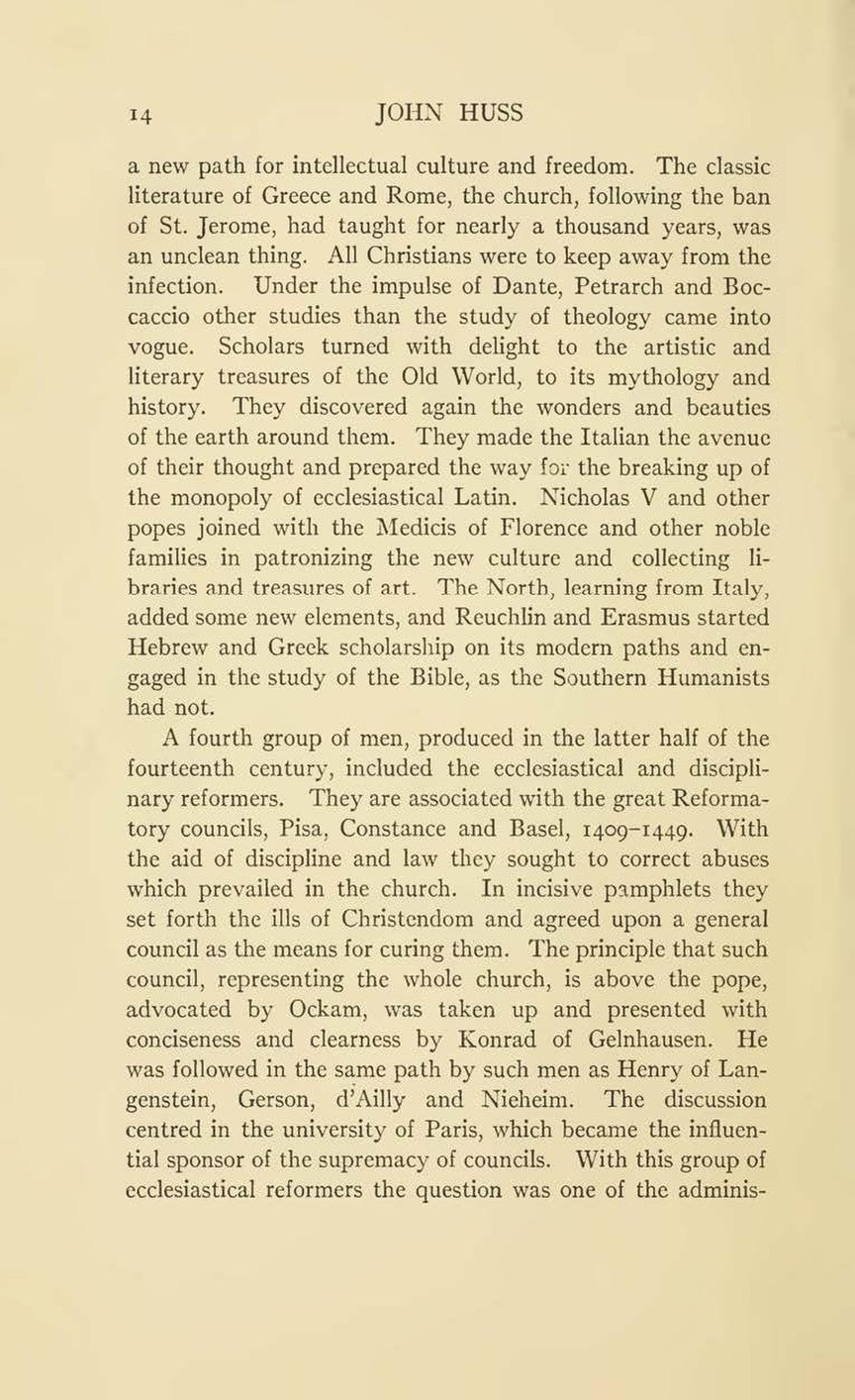a new path for intellectual culture and freedom. The classic literature of Greece and Rome, the church, following the ban of St. Jerome, had taught for nearly a thousand years, was an unclean thing. All Christians were to keep away from the infection. Under the impulse of Dante, Petrarch and Boccaccio other studies than the study of theology came into vogue. Scholars turned with delight to the artistic and literary treasures of the Old World, to its mythology and history. They discovered again the wonders and beauties of the earth around them. They made the Italian the avenue of their thought and prepared the way for the breaking up of the monopoly of ecclesiastical Latin. Nicholas V and other popes joined with the Medicis of Florence and other noble families in patronizing the new culture and collecting libraries and treasures of art. The North, learning from Italy, added some new elements, and Reuchlin and Erasmus started Hebrew and Greck scholarship on its modern paths and engaged in the study of the Bible, as the Southern Humanists had not.
A fourth group of men, produced in the latter half of the fourteenth century, included the ecclesiastical and disciplinary reformers. They are associated with the great Reformatory councils, Pisa, Constance and Basel, 1409–1449. With the aid of discipline and law they sought to correct abuses which prevailed in the church. In incisive pamphlets they set forth the ills of Christendom and agreed upon a general council as the means for curing them. The principle that such council, representing the whole church, is above the pope, advocated by Ockam, was taken up and presented with conciseness and clearness by Konrad of Gelnhausen. He was followed in the same path by such men as Henry of Langenstein, Gerson, d’Ailly and Nieheim. The discussion centred in the university of Paris, which became the influential sponsor of the supremacy of councils. With this group of ecclesiastical reformers the question was one of the adminis-
